Works
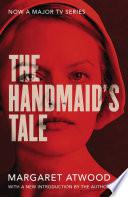
The Handmaid's Tale
Margaret Atwood
The Blind Assassin
Margaret Atwood
Oryx and Crake
Margaret Atwood
Cat's Eye
Margaret Atwood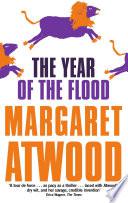
The Year of the Flood
Margaret Atwood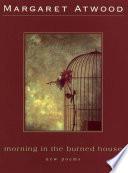
Morning in the Burned House
Margaret Atwood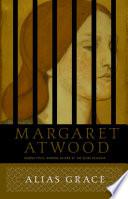
Alias Grace
Margaret Atwood
Surfacing
Margaret Atwood
The Penelopiad
Margaret Atwood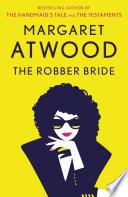
The Robber Bride
Margaret Atwood
Lady Oracle
Margaret Atwood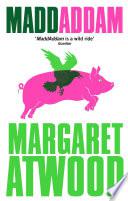
MaddAddam
Margaret Atwood
The Edible Woman
Margaret Atwood
Bodily Harm
Margaret Atwood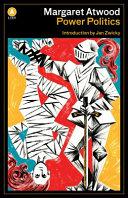
Power Politics
Margaret AtwoodStone Mattress: Nine Tales
Margaret Atwood
Dancing Girls
Margaret AtwoodGood Bones
Margaret Atwood
The Heart Goes Last
Margaret Atwood
Wilderness Tips
Margaret Atwood
Bluebeard's Egg
Margaret AtwoodFamous Margaret Atwood Quotes
“You can only be jealous of someone who has something you think you ought to have yourself.”
Source: The Handmaid's Tale
“Men are afraid that women will laugh at them. Women are afraid that men will kill them.”
Context: "Why do men feel threatened by women?" I asked a male friend of mine. (I love that wonderful rhetorical device, "a male friend of mine." It's often used by female journalists when they want to say something particularly bitchy but don't want to be held responsible for it themselves. It also lets people know that you do have male friends, that you aren't one of those fire-breathing mythical monsters, The Radical Feminists, who walk around with little pairs of scissors and kick men in the shins if they open doors for you. "A male friend of mine" also gives — let us admit it — a certain weight to the opinions expressed.) So this male friend of mine, who does by the way exist, conveniently entered into the following dialogue. "I mean," I said, "men are bigger, most of the time, they can run faster, strangle better, and they have on the average a lot more money and power." "They're afraid women will laugh at them," he said. "Undercut their world view." Then I asked some women students in a quickie poetry seminar I was giving, "Why do women feel threatened by men?" "They're afraid of being killed," they said.
Margaret Atwood Quotes about people
On Writing Poetry (1995)
Context: After a year or two of keeping my head down and trying to pass myself off as a normal person, I made contact with the five other people at my university who were interested in writing; and through them, and some of my teachers, I discovered that there was a whole subterranean Wonderland of Canadian writing that was going on just out of general earshot and sight
Margaret Atwood: Trending quotes
Margaret Atwood Quotes
“Stupidity is the same as evil if you judge by the results.”
Source: Surfacing
Morning in the Burned House (1995), The Loneliness of the Military Historian
Context: Instead of this, I tell
what I hope will pass as truth.
A blunt thing, not lovely.
The truth is seldom welcome,
especially at dinner,
though I am good at what I do.
My trade is courage and atrocities.
I look at them and do not condemn.
I write things down the way they happened,
as near as can be remembered.
I don’t ask why, because it is mostly the same.
Wars happen because the ones who start them
think they can win.
“All stories are about wolves. All worth repeating, that is. Anything else is sentimental drivel.”
Source: The Blind Assassin (2000)
Context: All stories are about wolves. All worth repeating, that is. Anything else is sentimental drivel. …Think about it. There's escaping from the wolves, fighting the wolves, capturing the wolves, taming the wolves. Being thrown to the wolves, or throwing others to the wolves so the wolves will eat them instead of you. Running with the wolf pack. Turning into a wolf. Best of all, turning into the head wolf. No other decent stories exist.
“I am not mad because I'm a woman… I'm mad because you're an asshole.”
Source: Cat's Eye
“War is what happens when language fails.”
The Robber Bride (1993), Ch. 6
“Do not let the bastards grind you down.”
Nolite te bastardes carborundorum.
Variant: Do not let the bastards grind you down.
Source: The Handmaid’s Tale (1985), Chapter 9 (p. 52)
Source: The Handmaid's Tale
“Ignoring isn’t the same as ignorance, you have to work at it.”
Variant: We lived, as usual by ignoring. Ignoring isn't the same as ignorance, you have to work at it.
Source: The Handmaid’s Tale (1985), Chapter 10 (p. 56)
Source: The Handmaid's Tale
“Better never means better for everyone… It always means worse, for some.”
Variant: Better never means better for everyone.
Source: The Handmaid’s Tale (1985), Chapter 32 (p. 211)
Source: The Handmaid's Tale
Context: You can’t make an omelette without breaking eggs, is what he says. We thought we could do better.
Better? I say, in a small voice. How can he think this is better?
Better never means better for everyone, he says. It always means worse, for some.
The Progressive interview (2010)
Context: There were a lot of utopias in the nineteenth century, wonderful societies that we might possibly construct. Those went pretty much out of fashion after World War I. And almost immediately one of the utopias that people were trying to construct, namely the Soviet Union, threw out a writer called Zamyatin who wrote a seminal book called We, which contains the seeds of Orwell and Huxley. Writers started doing dystopias after we saw the effects of trying to build utopias that required, unfortunately, the elimination of a lot of people before you could get to the perfect point, which never arrived. … I don’t believe in a perfect world. I don’t believe it’s achievable, and I believe the people who try to achieve it usually end up turning it into something like Cambodia or something very similar because purity tests set in. Are you ideologically pure enough to be allowed to live? Well, it turns out that very few people are, so you end up with a big powerful struggle and a mass killing scene.
Morning in the Burned House (1995), The Loneliness of the Military Historian
Context: Despite the propaganda, there are no monsters,
or none that can be finally buried.
Finish one off, and circumstances
and the radio create another.
Believe me: whole armies have prayed fervently
to God all night and meant it,
and been slaughtered anyway.
Brutality wins frequently,
and large outcomes have turned on the invention
of a mechanical device, viz. radar.
True, valour sometimes counts for something,
as at Thermopylae. Sometimes being right —
though ultimate virtue, by agreed tradition,
is decided by the winner.
Sometimes men throw themselves on grenades
and burst like paper bags of guts
to save their comrades.
I can admire that.
But rats and cholera have won many wars.
Those, and potatoes,
or the absence of them.
On Writing Poetry (1995)
Context: I did not know that the rules about these things were different if you were female. I did not know that "poetess" was an insult, and that I myself would some day be called one. I did not know that to be told I had transcended my gender would be considered a compliment. I didn't know — yet — that black was compulsory. All of that was in the future. When I was sixteen, it was simple. Poetry existed; therefore it could be written; and nobody had told me — yet — the many, many reasons why it could not be written by me.
"Backdrop addresses cowboy" (1974)
Selected Poems 1965-1975 (1976)
Context: Your righteous eyes, your laconic
trigger-fingers
people the streets with villains:
as you move, the air in front of you
blossoms with targets and you leave behind you a heroic
trail of desolation:
beer bottles
slaughtered by the side
of the road, bird-
skulls bleaching in the sunset.
"The circle game"
Selected Poems 1965-1975 (1976)
Context: The weapons
that were once outside
sharpening themselves on war
are now indoors
there, in the fortress,
fragile
in glass cases; Why is it
(I’m thinking
of the careful moulding
round the stonework archways)
that in this time, such
elaborate defences keep
things that are no longer
(much)
worth defending?
“To live in prison is to live without mirrors. To live
without mirrors is to live without the self.”
Selected Poems 1976-1986 (1987), Marrying the Hangman
Context: To live in prison is to live without mirrors. To live
without mirrors is to live without the self. She is
living selflessly, she finds a hole in the stone wall and
on the other side of the wall, a voice. The voice
comes through darkness and has no face. This voice
becomes her mirror.
On Writing Poetry (1995)
Context: It's a feature of our age that if you write a work of fiction, everyone assumes that the people and events in it are disguised biography — but if you write your biography, it's equally assumed you're lying your head off. This last may be true, at any rate of poets: Plato said that poets should be excluded from the ideal republic because they are such liars. I am a poet, and I affirm that this is true. About no subject are poets tempted to lie so much as about their own lives; I know one of them who has floated at least five versions of his autobiography, none of them true. I of course — being also a novelist — am a much more truthful person than that. But since poets lie, how can you believe me?
Morning in the Burned House (1995), The Loneliness of the Military Historian
Context: Despite the propaganda, there are no monsters,
or none that can be finally buried.
Finish one off, and circumstances
and the radio create another.
Believe me: whole armies have prayed fervently
to God all night and meant it,
and been slaughtered anyway.
Brutality wins frequently,
and large outcomes have turned on the invention
of a mechanical device, viz. radar.
True, valour sometimes counts for something,
as at Thermopylae. Sometimes being right —
though ultimate virtue, by agreed tradition,
is decided by the winner.
Sometimes men throw themselves on grenades
and burst like paper bags of guts
to save their comrades.
I can admire that.
But rats and cholera have won many wars.
Those, and potatoes,
or the absence of them.
Source: The Handmaid’s Tale (1985), Chapter 30 (pp. 194-195)
Context: (She is reciting the Lord’s prayer) Now we come to forgiveness. Don’t worry about forgiving me right now. There are more important things. For instance: keep the others safe, if they are safe. Don’t let them suffer too much. If they have to die, let it be fast. You might even provide a Heaven for them. We need You for that. Hell we can make for ourselves.
On Writing Poetry (1995)
Context: The day I became a poet was a sunny day of no particular ominousness. I was walking across the football field, not because I was sports-minded or had plans to smoke a cigarette behind the field house — the only other reason for going there — but because this was my normal way home from school. I was scuttling along in my usual furtive way, suspecting no ill, when a large invisible thumb descended from the sky and pressed down on the top of my head. A poem formed. It was quite a gloomy poem: the poems of the young usually are. It was a gift, this poem — a gift from an anonymous donor, and, as such, both exciting and sinister at the same time. I suspect this is the way all poets begin writing poetry, only they don't want to admit it, so they make up more rational explanations. But this is the true explanation, and I defy anyone to disprove it.
The Progressive interview (2010)
Context: There were a lot of utopias in the nineteenth century, wonderful societies that we might possibly construct. Those went pretty much out of fashion after World War I. And almost immediately one of the utopias that people were trying to construct, namely the Soviet Union, threw out a writer called Zamyatin who wrote a seminal book called We, which contains the seeds of Orwell and Huxley. Writers started doing dystopias after we saw the effects of trying to build utopias that required, unfortunately, the elimination of a lot of people before you could get to the perfect point, which never arrived. … I don’t believe in a perfect world. I don’t believe it’s achievable, and I believe the people who try to achieve it usually end up turning it into something like Cambodia or something very similar because purity tests set in. Are you ideologically pure enough to be allowed to live? Well, it turns out that very few people are, so you end up with a big powerful struggle and a mass killing scene.
"They are hostile nations" http://www.poetryfoundation.org/archive/poem.html?id=177292
Selected Poems 1965-1975 (1976)
"In the Secular Night"
Morning in the Burned House (1995)
Context: There is so much silence between the words,
you say. You say, The sensed absence
of God and the sensed presence
amount to much the same thing,
only in reverse.
You say, I have too much white clothing.
You start to hum.
Several hundred years ago
this could have been mysticism
or heresy. It isn’t now.
Outside there are sirens.
Someone’s been run over.
The century grinds on.
On Writing Poetry (1995)
Context: My English teacher from 1955, run to ground by some documentary crew trying to explain my life, said that in her class I had showed no particular promise. This was true. Until the descent of the giant thumb, I showed no particular promise. I also showed no particular promise for some time afterwards, but I did not know this. A lot of being a poet consists of willed ignorance. If you woke up from your trance and realized the nature of the life-threatening and dignity-destroying precipice you were walking along, you would switch into actuarial sciences immediately. If I had not been ignorant in this particular way, I would not have announced to an assortment of my high school female friends, in the cafeteria one brown-bag lunchtime, that I was going to be a writer. I said "writer," not "poet;" I did have some common sense. But my announcement was certainly a conversation-stopper. Sticks of celery were suspended in mid-crunch, peanut-butter sandwiches paused halfway between table and mouth; nobody said a word. One of those present reminded me of this incident recently — I had repressed it — and said she had been simply astounded. "Why?," I said. "Because I wanted to be a writer?" "No," she said. "Because you had the guts to say it out loud."
“I said "writer," not "poet;" I did have some common sense.”
On Writing Poetry (1995)
Context: My English teacher from 1955, run to ground by some documentary crew trying to explain my life, said that in her class I had showed no particular promise. This was true. Until the descent of the giant thumb, I showed no particular promise. I also showed no particular promise for some time afterwards, but I did not know this. A lot of being a poet consists of willed ignorance. If you woke up from your trance and realized the nature of the life-threatening and dignity-destroying precipice you were walking along, you would switch into actuarial sciences immediately. If I had not been ignorant in this particular way, I would not have announced to an assortment of my high school female friends, in the cafeteria one brown-bag lunchtime, that I was going to be a writer. I said "writer," not "poet;" I did have some common sense. But my announcement was certainly a conversation-stopper. Sticks of celery were suspended in mid-crunch, peanut-butter sandwiches paused halfway between table and mouth; nobody said a word. One of those present reminded me of this incident recently — I had repressed it — and said she had been simply astounded. "Why?," I said. "Because I wanted to be a writer?" "No," she said. "Because you had the guts to say it out loud."
“I am the horizon
you ride towards, the thing you can never lasso”
"Backdrop addresses cowboy" (1974)
Selected Poems 1965-1975 (1976)
Context: I am the horizon
you ride towards, the thing you can never lasso I am also what surrounds you:
my brain
scattered with your
tincans, bones, empty shells,
the litter of your invasions. I am the space you desecrate
as you pass through.
On Writing Poetry (1995)
Context: I no longer feel I'll be dead by thirty; now it's sixty. I suppose these deadlines we set for ourselves are really a way of saying we appreciate time, and want to use all of it. I'm still writing, I'm still writing poetry, I still can't explain why, and I'm still running out of time. Wordsworth was sort of right when he said, "Poets in their youth begin in gladness/ But thereof comes in the end despondency and madness." Except that sometimes poets skip the gladness and go straight to the despondency. Why is that? Part of it is the conditions under which poets work — giving all, receiving little in return from an age that by and large ignores them — and part of it is cultural expectation — "The lunatic, the lover and the poet," says Shakespeare, and notice which comes first. My own theory is that poetry is composed with the melancholy side of the brain, and that if you do nothing but, you may find yourself going slowly down a long dark tunnel with no exit. I have avoided this by being ambidextrous: I write novels too. But when I find myself writing poetry again, it always has the surprise of that first unexpected and anonymous gift.
“A rat in a maze is free to go anywhere, as long as it stays inside the maze.”
Source: The Handmaid's Tale
Source: The Handmaid’s Tale (1985), Chapter 5 (p. 24)
Source: The Handmaid's Tale
“You can think clearly only with your clothes on.”
Source: The Handmaid’s Tale (1985), Chapter 24 (p. 143)
Source: The Handmaid's Tale
